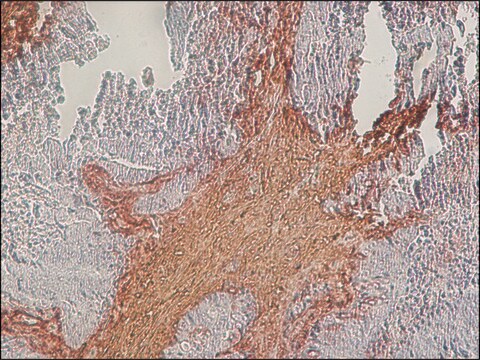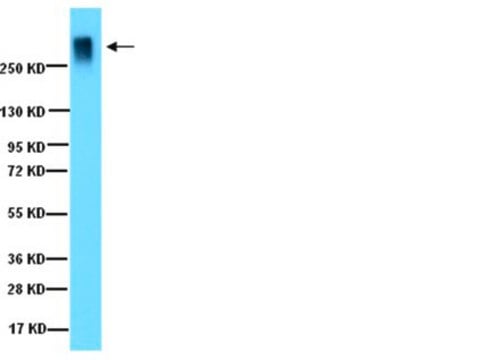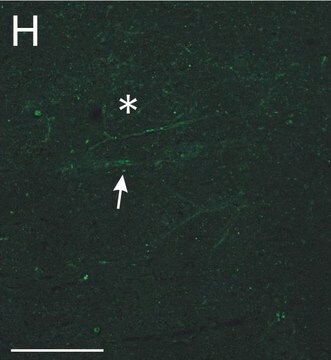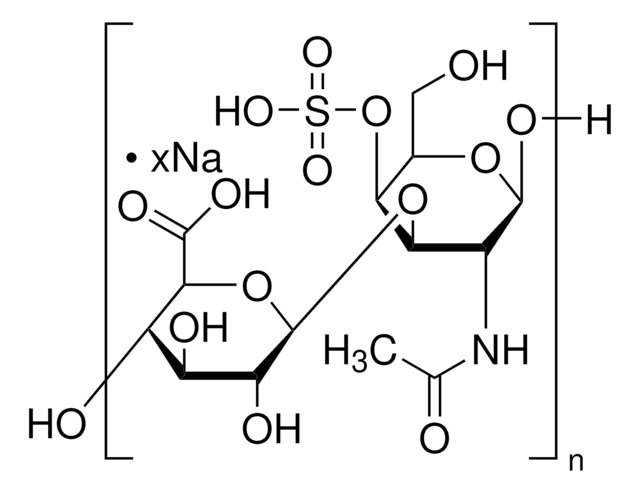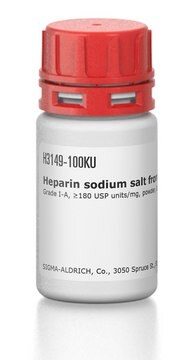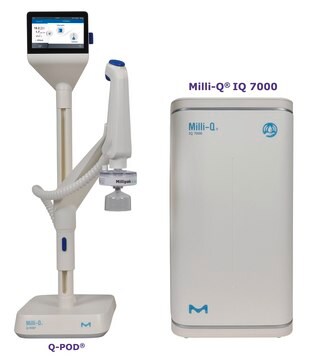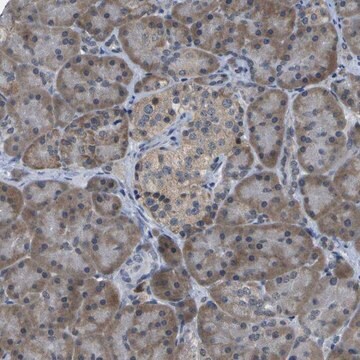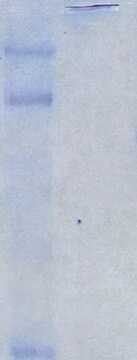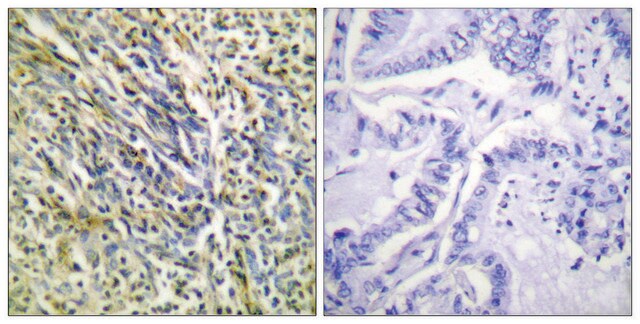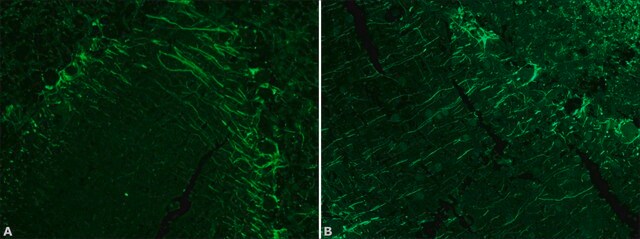Wichtige Dokumente
C8035
Monoclonal Anti-Chondroitin Sulfate antibody produced in mouse
clone CS-56, ascites fluid
Synonym(e):
Chondroitin Sulfate Antibody, Chondroitin Sulfate Antibody - Monoclonal Anti-Chondroitin Sulfate antibody produced in mouse, Cs56 Antibody
About This Item
Empfohlene Produkte
Biologische Quelle
mouse
Qualitätsniveau
Konjugat
unconjugated
Antikörperform
ascites fluid
Antikörper-Produkttyp
primary antibodies
Klon
CS-56, monoclonal
Speziesreaktivität
chicken, bovine, mouse, human, pig, rabbit, rat
Methode(n)
indirect immunofluorescence: 1:200 using bovine mammary gland epithelial (BMGE) cells
microarray: suitable
Isotyp
IgM
UniProt-Hinterlegungsnummer
Versandbedingung
dry ice
Lagertemp.
−20°C
Posttranslationale Modifikation Target
unmodified
Angaben zum Gen
human ... ACAN(176)
mouse ... Acan(11595)
rat ... Acan(58968)
Allgemeine Beschreibung
This product can be found as purified product that was produced using cell culture hybridoma (SAB4200696)
Spezifität
Immunogen
Anwendung
- in immunohistochemistry as primary antibody to study of spinal cords and brain cryosections.
- in ELISA and western blot for purification of soluble forms of myelin-associated glycoprotein (MAG) and neural cell adhesion molecule (N-CAM).
- in flow cytometry studies.
- as primary antisera in a study of TGF-β regulation.
Biochem./physiol. Wirkung
Lagerung und Haltbarkeit
For extended storage, the solution may be frozen in working aliquots. Repeated freezing and thawing is not recommended. Storage in "frost-free" freezers is not recommended. If slight turbidity occurs upon prolonged storage, clarify the solution by centrifugation before use.
Sonstige Hinweise
SAB4200696 Anti-Chondroitin Sulfate antibody, Mouse monoclonal
clone CS-56, purified from hybridoma cell culture
Haftungsausschluss
Sie haben nicht das passende Produkt gefunden?
Probieren Sie unser Produkt-Auswahlhilfe. aus.
Ähnliches Produkt
Lagerklassenschlüssel
12 - Non Combustible Liquids
WGK
WGK 1
Flammpunkt (°F)
Not applicable
Flammpunkt (°C)
Not applicable
Hier finden Sie alle aktuellen Versionen:
Besitzen Sie dieses Produkt bereits?
In der Dokumentenbibliothek finden Sie die Dokumentation zu den Produkten, die Sie kürzlich erworben haben.
Kunden haben sich ebenfalls angesehen
Artikel
Glycosaminoglycans are large linear polysaccharides constructed of repeating disaccharide units.
Unser Team von Wissenschaftlern verfügt über Erfahrung in allen Forschungsbereichen einschließlich Life Science, Materialwissenschaften, chemischer Synthese, Chromatographie, Analytik und vielen mehr..
Setzen Sie sich mit dem technischen Dienst in Verbindung.